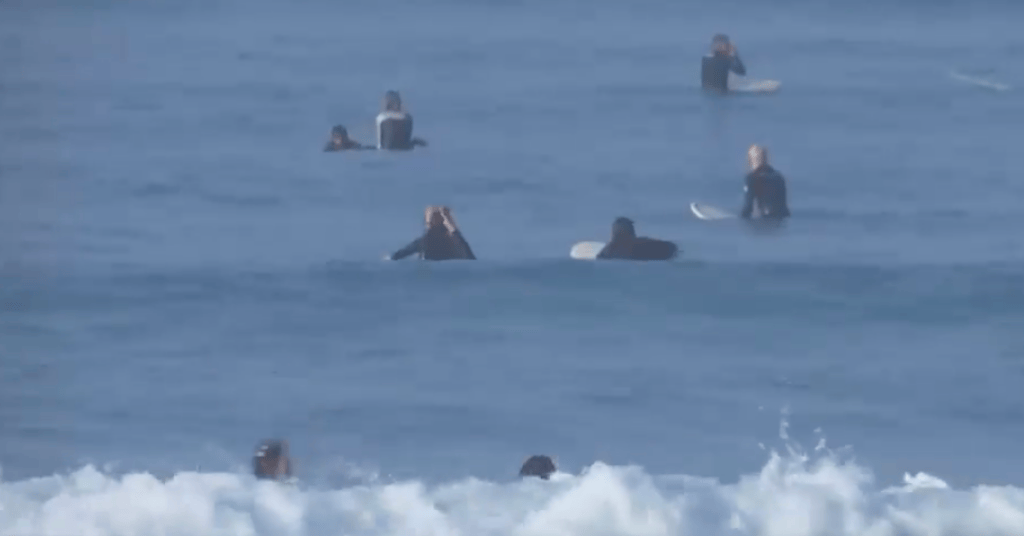
Nine seals test positive for rabies in South Africa

Surfers and beachgoers in South Africa are being warned to stay away from seals as nine have tested positive for rabies. The situation along the coastline is being described as the world’s first significant outbreak of the disease in marine mammals. Changes in their behaviour were first reported in 2021, with reports of seals attacking humans.
In late June, the National Institute for Communicable Diseases (NICD) sent out an alert to make the public aware of the ongoing rabies risk along the Western Cape coast. That was after a Cape fur seal tested positive for rabies. The Cape fur seal died on 22 May and the laboratory results came in on 7 June.
NICD says any person bitten by a seal is urged to seek immediate medical attention, and to notify the relevant authorities.
“After the recent confirmation of rabies in Cape fur seals along the Western Cape coast, residents and travellers are urged to be cautious when visiting our coastline. Individuals who frequently come in contact with seals or using coastal areas for recreational activities such as surfers, divers, water sports enthusiasts, and those in the fishing industry particularly are asked to be extra cautious,” an NICD statement says.
Stored samples collected by Sea Search from seals since 2021 (the organisation has sampled and kept 120 brains over the last two and a half years) are currently being tested to determine the timeline and extent of the outbreak. The Agricultural Research Council’s Onderstepoort Veterinary Research has confirmed positive rabies cases in seals from Melkbosstrand (October 2023), Plettenberg Bay (January 2024), and Die Dam near Gansbaai (June 2024). Additionally, researchers at the University of Pretoria have detected rabies in seals from Fish Hoek (October 2023), Pringle Bay (February 2024), Strand (May 2024), and Muizenberg (May 2024). This highlights the potential for rabies cases along the entire coastline where seals are present, according to NICD.
“I was out surfing the other day, when this seal popped up in the lineup [of surfers] to sun itself,” Gregg Oelofse, who is in charge of coastal management for Cape Town council told The Guardian.

“Usually, surfers would enjoy the interaction. But now everyone was paddling as fast as they could to get away.”
He says the main concern is what the rabies infection will do the seal population itself, and to avoid the transfer of the disease into other coastal wildlife. Then there’s also preventing rabies transfering into people, as seals and people come into close contact. Monitoring of seal behaviour is ongoing looking for unusual behaviour.
Any seal that shows unusual or aggressive behaviour will be tested, Lesley Van Helden, from Western Cape Veterinary Services, told local media. The most notable symptom appears to be a change in behaviour. That looks like aggression . . . attacking people unprovoked. She says seals have been biting surfboards or hitting their heads against boats. Van Helden says people who are bitten should wash the wound immediately and seek medical help.
Western Cape Government has issued advice about what to do if bitten.
‘If you have been bitten by a seal in the last six months, it is crucial to seek medical evaluation from a healthcare provider (general practitioner, clinic, public or private hospital) immediately. The incident will be assessed for the necessity of post-exposure prophylaxis (PEP). This is irrespective of whether you previously received medical attention for the bite. Rabies vaccine and immunoglobulin is available at strategic public hospitals, emergency centres at private hospitals, travel clinics and selected pharmacies.’
 Seals live in densely packed colonies, this one is in neighbouring Namibia
Seals live in densely packed colonies, this one is in neighbouring NamibiaLast month, a single seal bit several surfers in a matter of minutes and another seal swam ashore with horrific facial injuries that could only have been inflicted by a seriously aggressive animal. These attacks convinced authorities to euthanise four animals and send their bodies to be tested for rabies, Cape Town surfer Nick Dall told The Guardian.
Dall says there has only ever been one recorded case of a seal contracting rabies – in Norway’s Svalbard islands in 1980.
“We think quite a few people have been bitten by rabid seals, but luckily no human has got infected yet. We don’t know why. Perhaps the transfer rate is low? Does salt water in their mouth reduce the viral load?”
Gregg Oelofse
Lifeguards and shark spotters are to close beaches if an aggressive seal is spotted, says Dall.
Rabies is a serious and often fatal disease. The rabies virus is spread to humans and other animals through contact with the saliva of infected animals. Humans can be exposed to rabies through bites, scratches or licks to wounds, grazes, broken skin, or to the lining of the mouth and nose by rabid animals.
 Seals are generally friendly, like this one which needs enticing off a boat in Namibia
Seals are generally friendly, like this one which needs enticing off a boat in NamibiaContinue to explore South Africa’s latest marine news.
Main image and surfers courtesy of ENCA film footage. Others courtesy of Zella Compton.
The post Nine seals test positive for rabies in South Africa appeared first on Marine Industry News.
